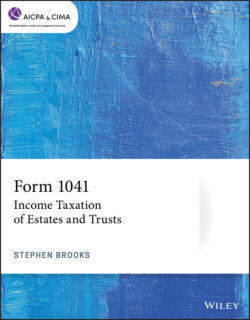Читать книгу Form 1041 - Stephen Brooks - Страница 33
На сайте Литреса книга снята с продажи.
Term for tax purposes
ОглавлениеFor tax purposes, the determination of whether a trust has terminated depends upon whether the property held in trust has been distributed to the persons entitled to succeed to the property upon termination of the trust rather than upon the technicality of whether or not the trustee has rendered his final accounting.
A trust does not automatically terminate upon the happening of the event by which the duration of the trust is measured. A reasonable time is permitted after such event for the trustee to perform the duties necessary to complete the administration of the trust. Thus, if under the terms of the governing instrument, the trust is to terminate upon the death of the life beneficiary and the corpus is to be distributed to the remainderman, the trust continues after the death of the life beneficiary for a period reasonably necessary to a proper winding up of the affairs of the trust.
However, the winding up of a trust cannot be unduly postponed, and if the distribution of the trust corpus is unreasonably delayed, the trust is considered terminated for federal income tax purposes after the expiration of a reasonable period for the trustee to complete the administration of the trust. Further, a trust will be considered as terminated when all the assets have been distributed except for a reasonable amount which is set aside in good faith for the payment of unascertained or contingent liabilities and expenses (not including a claim by a beneficiary in the capacity of beneficiary).43
